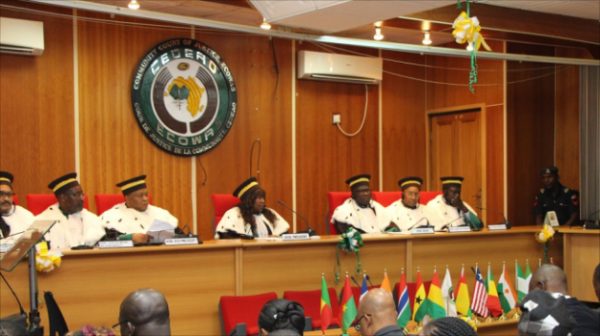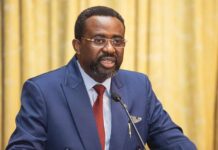Lawyer Femi Falana, the counsel representing Venezuelan Diplomat Alex Saab in the ECOWAS Court of Justice has challenged the assertions made by Cape Verde that the plaintiff does not have a diplomat status.
Presenting their case before the court on Friday, February 5, 2021, Mr. Falana stressed that Mr. Saab’s diplomatic status was not in doubt since at the time of his arrest in Cape Verde in June 2020, he was on a diplomatic mission to Iran as a Special Envoy of Venezuela.
Mr. Saab was arrested in June 2020 and put in prison after which he was moved to a heavily guarded house with armed military men.
The U.S government is also pushing for an extradition of Mr. Saab to face charges in the states.
In his argument to the ECOWAS Court, Mr. Falana stated that Mr. Saab had, and continues to have, the status of a Special Envoy of Venezuela.
“He therefore, enjoys diplomatic immunity and inviolability. Therefore, not only can he not be subjected to imprisonment and legal proceedings by Cape Verde, such actions also violate customary international law.
Mr. Falana recounted that on 24 December 2020, Alex Saab was appointed as Alternate Permanent Representative of Venezuela to the African Union.
He added that his immunity was thus reinforced, and that he continues to command the full support of Venezuela as a diplomatic agent.
“No objections have been raised to Mr Saab’s appointment by the African Union. It is not a matter for Cape Verde (or any other country for that matter) to raise issue with whom Venezuela as a sovereign state appoints as its ambassador. Equally it is for Iran to determine if it recognizes Mr Saab as a Special Envoy to Iran and not any third party,” he said.
The lawyer argued that though Cape Verde has released Alex Saab into house arrest, it has only done so to give the impression of having complied with the ECOWAS Court 2 December decision.
He observed that Cape Verde has only partially grudgingly complied and the conditions of Mr Saab’s so-called house arrest are well short of accepted international standards and even below those Cape Verde itself has offered to drug traffickers in the past.
In response, The Cape Verdean Representative, Dr Henrique Borges said Cape Verde does not recognize the authority of the ECOWAS Court to decide the case as it has not signed and, consequently, not bound by the Additional Protocols of ECOWAS.
The response has been described as a contradictory position and laughable since on the one hand the Court has already ruled on 2 December that it has jurisdiction in the matter.
Dr Henrique Borges further argued that there is no sign that Alex Saab has a diplomatic status.
On these arguments Mr. Falana pushed forward the arguments that Cape Verde cannot claim that Alex Saab is not a diplomat as he is a Special Envoy to Iran and recognized in that role by Iran.
He added that the African Union has accepted Mr. Saab’s appointment as and therefore his immunity and inviolability are absolute and cannot be challenged by Cape Verde.
He stressed that Cape Verde has to comply with the ECOWAS Ruling in accordance with the Revised Treaty (Article 15) besides the Additional Protocols.
“Under the provisions of the Additional Protocol 2005, if 9 States Members sign it, it becomes binding for all the States Members of ECOWAS. In this case, 14 out of 15 member states signed with the only one not signing was Cape Verde and that only because its Prime Minister at the time had to return to CV to deal with an emergency.
He stated that Cape Verde has not at any time since expressed any discomfort with the protocols, at the material time fully participated in the discussions to agree the protocols and, importantly has one of its jurists appointed as a member of the ECOWAS Panel of Judges, its current Chief Justice is a member of the Committee of Chief Justices of the ECOWAS Court and a current serving member of the Cape Verde Supreme Court was previously a member of the ECOWAS Court.
“ Once again, by its conduct Cape Verde can be seen to have accepted the jurisdiction of the ECOWAS Court,” he said.










